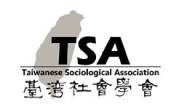【社會調查士】日本社會調查協會「社會調查士」證照制度簡介
2018-07-11
日本社會調查協會「社會調查士」證照制度簡介
翻譯:蘇芸歡(台灣大學社會學學士)
一、參與計劃之院校目前共有239間大學院校(含研究所)參與此計劃。(詳細學校列表請見附件一)
二、證照類別與申請條件
A.社會調查士
為一般在學大學生而設的。持有證照者不僅具備基本的研究方法與分析技巧能力,也對社會調查過程有一定的了解。
| 社會調查士 | 在畢業時取得「社會調查士」資格的條件如下:
|
| 社會調查士 (候選人) |
在學期間取得「社會調查士(候選人)」資格取得後,會發出認定證。申請此資格之條件如下:
|
- 專業社會調查士
| 專業社會調査士 (正規) |
在畢業時取得「專業社會調査士(正規)」資格的條件如下:
|
| 專業社會調査士 (8条規定) |
已完成研究所課程者,若在教育、研究或實務方面具有專業的社會調查成果者也能申請「專業社會調査士」證照,唯申請期限僅至2021年3月(申請作業時限為2020年6月-7月間)為止。申請之條件如下:
|
| 專業社會調査士 (候選人) |
在學期間取得「專業社會調査士(候選人)」資格取得後,會發出認定證。申請此資格之條件如下:
|
三、認定課程之群組類別 (詳見附表一)
| 群組 | 課程範圍 | 備註 |
| A群組 | 社會調查基本原理相關之課程 | 「社會調查士」範圍 |
| B群組 | 研究設計與實施方法相關之課程 | |
| C群組 | 基本的數據分析相關之課程 | |
| D群組 | 社會調查必要的統計學相關之課程 | |
| E群組 | 多變量分析方法相關之課程 | |
| F群組 | 質性研究和分析方法相關之課程 | |
| G群組 | 社會調查實務經驗相關之課程(田野) | |
| H群組 | 研究規劃與設計相關之練習(實習)課程 | 「專業社會調查士」範圍 |
| I群組 | 多變量分析相關之練習(實習)課程 | |
| J群組 | 質性研究方法相關之練習(實習)課程 |
四、往年取得證照人數統計
| 年度 | 社會調査士 | 社會調査士 (候選人) |
專業社會調査士 (正規) |
專業社會調査士 (8条規定) |
專業社會調査士 (候選人) |
| 2004年度 | 167名 | 530名 | 0名 | 301名 | - |
| 2005年度 | 449名 | 1,109名 | 1名 | 424名 | - |
| 2006年度 | 999名 | 1,609名 | 9名 | 290名 | - |
| 2007年度 | 1,455名 | 1,929名 | 25名 | 257名 | - |
| 2008年度 | 2,067名 | 2,269名 | 45名 | 171名 | - |
| 2009年度 | 2,612名 | 2,349名 | 40名 | 129名 | - |
| 2010年度 | 2,829名 | 2,294名 | 52名 | 129名 | - |
| 2011年度 | 2,938名 | 2,224名 | 41名 | 107名 | - |
| 2012年度 | 2,843名 | 2,201名 | 72名 | 126名 | 2名 |
| 2013年度 | 2,763名 | 2,122名 | 69名 | 106名 | 2名 |
| 2014年度 | 2,748名 | 1,798名 | 56名 | 102名 | 1名 |
| 2015年度 | 2,487名 | 1,851名 | 59名 | 101名 | 0名 |
| 2016年度 | 2,402名 | 1,621名 | 53名 | 81名 | 1名 |
| 2017年度 | 2,217名 | 1,717名 | 61名 | 109名 | 0名 |
| 合 計 | 28,976名 | 25,623名 | 583名 | 2,433名 | 6名 |
附件一、群組科目要求(參考協會英文版網頁)
| Groups | Requirements |
| A- Introduction to Social Research | This course explains the basics of the significance and types of social research. The course features history, goals, methodologies, ethics, types and examples of social research (e.g., quantitative and qualitative research, survey and case studies, population censuses and other official statistics as well as academic research, public opinion research and marketing research, questionnaire surveys and ethnographies). |
| B- Social Research Design and Data Collection Methods | This course explains detailed social research methods. The course also features objectives and methods, research planning and design, hypothesis construction, complete and sample surveys, random sampling, sample size and errors, sampling methods, design of questions and questionnaires, data collection and aggregation methods for social research. |
| C- Basic Analysis of Documents and Data | This course explains basic knowledge for reading official statistics, survey reports and fieldwork papers. The course features methodologies for reading and computing desciptive statistics (e.g., frequency distributions, averages and other summary statistics, and cross tabulation),interpreting and drawing graphs, and reading and aggregating various qualitative data. It also presents fundamental statistical concepts (e.g., correlation coefficients), the distinction between causality and correlation, and the concept of spurious correlation. |
| D- Statistics for Social Research | This course explains fundamental knowledge of statistics for social research. The course features the basics of probability theory, basic statistical values, testing/estimation theory and its application (testing for means, percentage differences and independency), sampling theory, association coefficients (cross tabulation statistics), correlation coefficients, partial correlation coefficients, control of variables, and basic regression analysis. |
| E- Quantitative Data Analysis Methods | This course explains the basic concepts and models used in fundamental multivariate analysis techniques. The course features multiple regression analysis and some other models (e.g., analysis of variance, path analysis, log-linear analysis, factor analysis and Hayashi’s quantification theory). |
| F- Qualitative Research Methods | This course explains the various methods used to collect and analyze qualitative data. The course features in-depth interview, participant observation, document analysis, ethnographies, life history analysis, conversation analysis, content analysis and other qualitative data analysis methods. |
| G- Practical Training in Social Research | This course provides students with practice in the entire process of quantitative or qualitative research through practical training. The course covers research planning, hypothesis building, research topic decisions, preparation of questions and questionnaires, selection of respondents and/or areas, sampling, conducting fieldwork, taking field notes, editing, data aggregation and analysis, hypothesis verification and report writing. |
| H- Graduate Seminar in Research Planning and Design | Students will acquire the practical knowledge and abilities to plan, design, and carry out social research and to analyze and summarize their results on research methodology and ethics. The course features practical training in survey method selection, survey planning/designing, hypothesis building, preparation of questionnaires, sampling or selection of respondents and fields, fieldwork, survey data arrangements, simple quantitative analysis/graphing, qualitative analysis, and report writing. |
| I- Graduate Seminar in Multivariate Analyses | Students will acquire the fundamental knowledge and ability to conduct multivariate analyses such as multiple regression analysis, path analysis, analysis of variance, analysis of covariance, log-linear analysis, logit analysis, principal component analysis, factor analysis, multidimensional scaling, cluster analysis, Hayashi’s quantification method, survival analysis and covariance structure analysis. |
| J- Graduate Seminar in Qualitative Research Methods | Students will acquire analysis methods (e.g., content analysis) applicable to qualitative data such as newspaper/magazine articles, document materials, video, broadcasting and music. They will also gain the fundamental knowledge and practical ability to apply various qualitative research methods (e.g., in-depth interview, participant observation, document analysis, ethnography, life history analysis and conversation analysis). |



